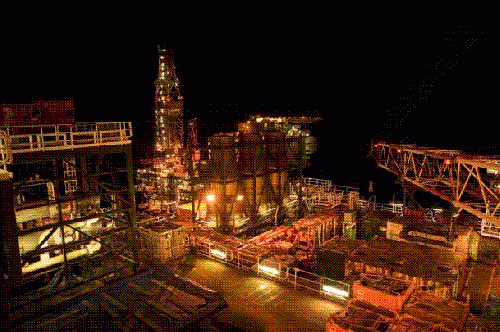The day after the International Atomic Energy Agency issued its latest report card on Iran's nuclear program, the New York Times headlined its story: "Nuclear Agency Says Iran Has Used New Technology." The IAEA, David Sanger explained, had presented Iran with evidence that it was conducting experiments in manufacturing nuclear weapon.
At the end of second paragraph, he mentions that the report also stated that "Iranian officials had finally begun to answer a number of longstanding questions about its nuclear activities."
But the IAEA, its report itself concludes, "has been able to continue to verify" that Iran isn't diverting nuclear material from nuclear energy to weapons research. Though it can't give Iran a clean bill of nuclear heath "before reaching some clarity about the nature of the alleged studies."
But what's with the "alleged studies" to which both the Times and Reuters refer? In 2005, the Washington Post reported, a laptop computer was "allegedly stolen from an Iranian whom German intelligence tried, unsuccessfully, to recruit as an informant. It was whisked out of the country by another Iranian."
The purloined laptop wound up in the hands of the US, which exhibited it to the IAEA in Vienna. A Times report read: "The Americans flashed on a screen and spread over a conference table selections from more than a thousand pages of Iranian computer simulations and accounts of experiments."
They included "sophisticated drawings of a deep subterranean shaft. . . consistent with a nuclear test-site schematic" and designs for a "facility to produce uranium gas [which] would give Iran a secret stock [for] fuel or for bombs." Most damining (allegedly) were "drawings on modifying Iran's ballistic missiles in ways that might accommodate a nuclear warhead."
But the IAEA was unimpressed. "I can fabricate that data," said one diplomat. "It looks beautiful, but is open to doubt."
Three years later, according to the AP, another diplomat with the IAEA still feels "much of it is of doubtful value." Other diplomat's comments included, "Relatively insignificant" and "It's not the amount, but the quality that counts."
In Asia Times Online Kaveh Afrasiabi wrote that "even David Albright, a former weapons inspector [and no friend of Iran] admitted that 'so many pieces are missing' in the US's allegations" about the laptop.
While yet another diplomat believed the US was acting in good faith, several more "suggested the U.S. was disingenuous in providing such a large amount of. . . questionable information just days before ElBaradei was to complete his report."
Iran barely had time to inspect the documents before the IAEA report was due to be released. The initial reaction of Iran's envoy to the International Atomic Energy Agency was "100 percent fabricated and forged."
Why the delayed release? At Informed Comment: Global Affairs, Farideh Farhi speculates that the Bush administration, "felt that the late release of these documents [was all] it had to keep the Iran file going." He wonders if we will face yet more haggling -- not over Iran's nuclear program per se, but over documents "that no one (except the Iranians) seem to be sure. . . are fake or not."
Nicholas Burns, the outgoing undersecretary of state who's been handling the Iran "dossier" (as the erudite Afrasiabi always calls it), concurs. He told Financial Times that, "I think this is going to be a drama that plays out well into 2009 and beyond."
Everyone is exhausted with this drama, Farhi maintains, especially ElBaradei, who must feel "the need to move on after years of what under other circumstances would be considered successful interaction between his Agency and a member country."
(Note: You can view every article as one long page if you sign up as an Advocate Member, or higher).





